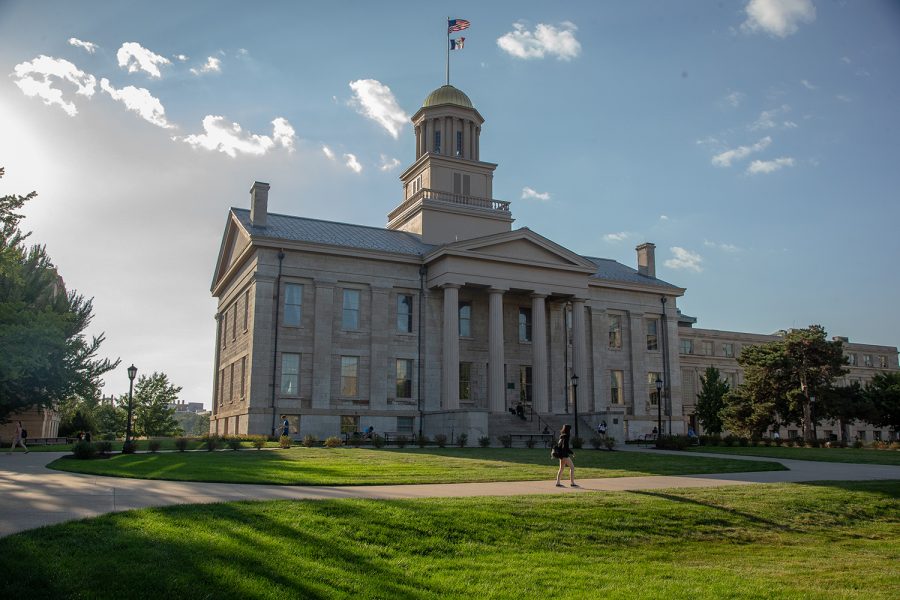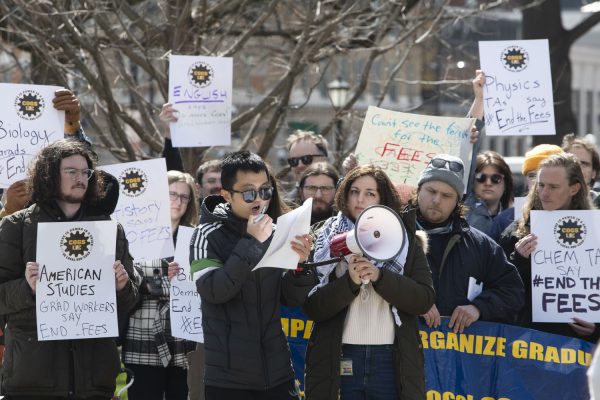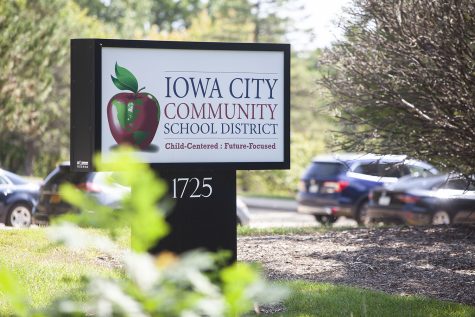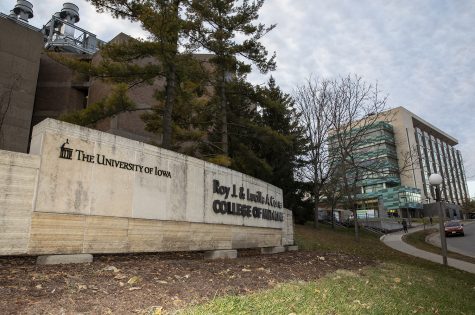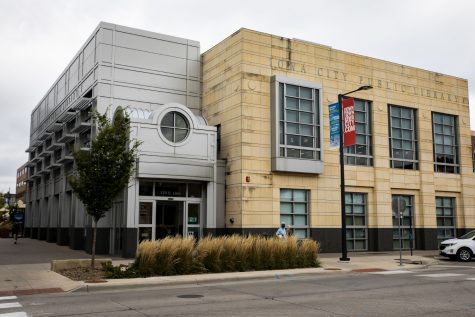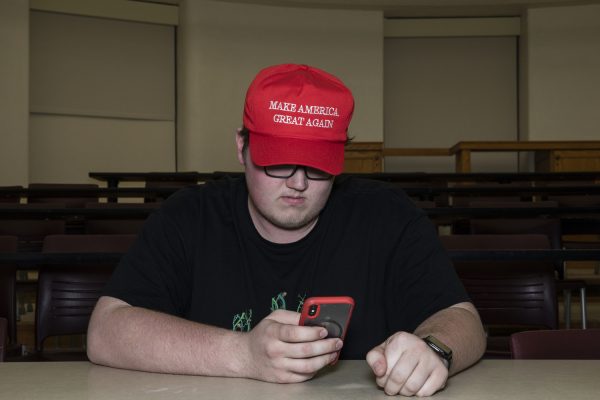Guest Opinion: Shared governance is shared decision-making
The American Association of University Professors agree that the Labor Center has a vital role in educating Iowans, both on and off the Iowa City campus.
The Old Capitol building is seen in 2018.
November 4, 2018
In an interview with The Daily Iowan concerning projected closure of the Labor Center and other centers and institutes, UI President Bruce Harreld stated, “Shared governance does not mean shared decision-making. It’s something different.” (Daily Iowan, 10/16/18) The American Association of University Professors (AAUP) has a contrary view. For more than a century the AAUP has enunciated and maintained the standards for institutions of higher education in the United States, ensuring adherence to its preeminent values of academic freedom, shared governance, and due process.
AAUP’s 1963 Statement on government of colleges and universities describes the practice of shared governance as the allocation of decision-making responsibility based on the nature of the decision to be made. The statement makes clear that the faculty has primary responsibility for carrying out an institution’s educational mission. In the decision to close centers and institutes, President Harreld cites budgeting pressures as the reason for the administration’s hasty, unilateral action. Yet the statement provides that budgeting is an area requiring “joint effort.” It provides: “The allocation of resources among competing demands is central in the formal responsibility of the governing board, in the administrative authority of the president, and in the educational function of the faculty …. The function of each component in budgetary matters should be understood by all.” Therefore, the faculty has a crucial role – arguably the primary one — in budgetary decisions concerning the educational mission.
In the UI’s recent decision to close centers and institutes, however, the faculty was denied its proper role. Indeed, it played no role at all. For example, the Labor Center’s academic home is within the College of Law. Yet College of Law faculty members were not consulted and learned of the decision from the media.
Over the past weeks and months, citizens across the state have voiced their dismay at the imminent closure of the Labor Center at numerous public meetings and demonstrations. One message has emerged clearly: The Labor Center has a vital role in educating Iowans, both on and off the Iowa City campus. Yet the group with primary responsibility for the university’s educational mission, the faculty, was not consulted as to its closure and certainly was denied any role in making the closure decision. The same could be said of the other centers and institutes slated for closure. The sort of top-down decision- making used to make corporate decisions is inappropriate in the academy because it may leave the most important perspectives unvoiced. Unfortunately, President Harreld’s much-vaunted enthusiasm for shared governance is based on lack of understanding as to what it really is.
Lois Cox, AAUP committee chairperson



